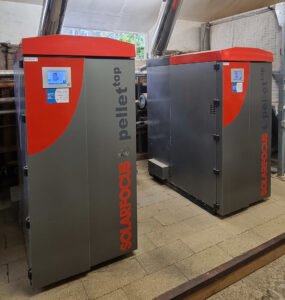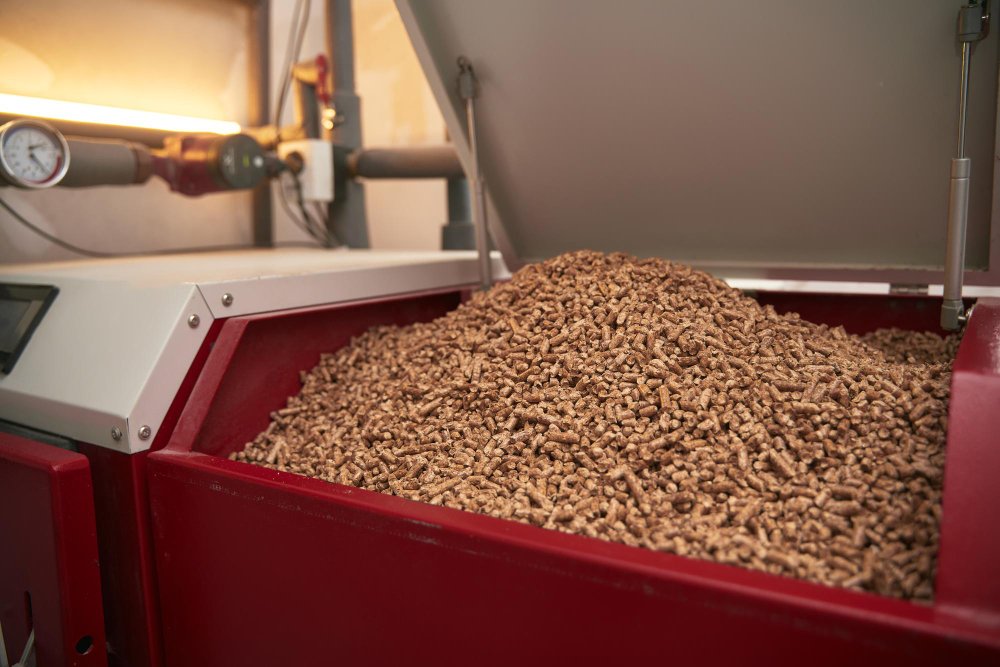Understanding the Basics About Biomass Boilers
As the world becomes more environmentally conscious, people are looking for ways to reduce their carbon footprint. One way to do this is by using renewable energy sources, such as biomass boilers. Biomass boilers are a type of heating system that burns organic materials, such as wood pellets or logs, to provide heat for homes and businesses. If you’re considering installing a biomass boiler, there are a few things you need to know.
Introduction to Biomass Boilers
A biomass boiler is a renewable heating system that burns organic materials to provide heat. These materials, which can include wood pellets, logs, and even agricultural waste, are known as biomass. Biomass boilers work by burning the biomass in a combustion chamber, which heats up water inside a tank. The hot water is then circulated through a heating system, such as radiators or underfloor heating, to provide warmth to a building.
Biomass boilers are a popular choice for those looking to reduce their impact on the environment. Unlike traditional heating systems, which burn fossil fuels, biomass boilers burn renewable materials that can be replenished. This means that they produce less carbon emissions and are more sustainable in the long term.
How Biomass Boilers Work
Biomass boilers work by burning organic materials to produce heat. The process begins with the loading of the biomass into the combustion chamber. The biomass is then ignited, and the resulting heat is used to heat up water in a tank. The hot water is then circulated through a heating system, such as radiators or underfloor heating, to provide warmth to a building.
Biomass boilers can be powered by a variety of organic materials, including wood pellets, logs, and even agricultural waste. The choice of fuel will depend on the type of boiler and the specific needs of the building. Wood pellets, for example, are a popular choice as they are easy to handle and store.
Types of Biomass Boilers
There are several different types of biomass boilers available, each with their own advantages and disadvantages. The most common types of biomass boilers are log biomass boilers, wood pellet biomass boilers, and wood pellet biomass stove boilers.
Log biomass boilers are the simplest type of biomass boiler and are ideal for those with access to a ready supply of logs. They are easy to use but can be less efficient than other types of biomass boilers.
Wood pellet biomass boilers are the most popular type of biomass boiler. They are easy to use and are highly efficient, making them a good choice for those looking to reduce their energy bills.
Wood pellet biomass stove boilers are similar to wood pellet biomass boilers but also have a stove built in. This makes them ideal for those looking for a dual purpose heating system.
Understanding the Costs of Biomass Boilers
The cost of installing a biomass boiler can vary depending on a number of factors, including the type of boiler, the size of the property, and the specific needs of the building. In general, biomass boilers are more expensive to install than traditional heating systems, but they can be more cost-effective in the long term.
One of the biggest costs associated with biomass boilers is the fuel. While biomass fuels such as wood pellets can be cheaper than traditional fossil fuels, the cost can still add up over time. It’s important to factor in the cost of fuel when considering the overall cost of a biomass boiler.
Financial Support for Biomass Boilers in England
In England, there are several financial support schemes available for those looking to install a biomass boiler. The Renewable Heat Incentive (RHI) is a government-backed scheme that provides financial support to those using renewable heating systems, including biomass boilers. The RHI pays participants for the heat generated by their biomass boiler, making it a good way to offset the costs of installation.
Choosing the Right Size Biomass Boiler for Your Home
Choosing the right size biomass boiler for your home is important to ensure that it is both efficient and effective. A biomass boiler that is too small will struggle to heat the building, while one that is too large will be inefficient and waste fuel.
The size of the biomass boiler you need will depend on a number of factors, including the size of your property, the number of rooms, and the specific heating requirements of the building. It’s important to get a professional assessment of your heating needs to ensure that you choose the right size biomass boiler.
Maintenance of Biomass Boilers
Like any heating system, biomass boilers require regular maintenance to ensure that they are running efficiently. This includes cleaning the combustion chamber, checking the fuel supply, and ensuring that the boiler is working correctly.
Regular maintenance can help to prolong the lifespan of your biomass boiler and ensure that it is running at its most efficient. It’s important to have your biomass boiler serviced by a qualified professional at least once a year.
Advantages of Biomass Boilers
There are several advantages to using biomass boilers. One of the biggest advantages is that they are a renewable energy source. Unlike traditional heating systems, which rely on fossil fuels, biomass boilers use organic materials that can be replenished.
Biomass boilers also have lower carbon emissions than traditional heating systems. This means that they are more environmentally friendly and can help to reduce your carbon footprint.
Disadvantages of Biomass Boilers
While there are many advantages to using biomass boilers, there are also some disadvantages. One of the biggest disadvantages is the initial cost of installation, which can be higher than traditional heating systems.
Biomass boilers also require a ready supply of biomass fuel, which can be a challenge in some areas. This means that those living in urban areas may struggle to find a reliable source of biomass fuel.

Environmental Impact of Biomass Boilers
Biomass boilers are generally considered to be more environmentally friendly than traditional heating systems. This is because they rely on renewable organic materials that can be replenished.
However, it’s important to note that biomass boilers still produce carbon emissions. While these emissions are lower than traditional heating systems, they can still contribute to climate change. It’s important to consider the overall environmental impact of biomass boilers when deciding whether to install one.
Benefits of Biomass Heating
There are several benefits to using biomass heating. One of the biggest benefits is that it can help to reduce your carbon footprint. By using a renewable energy source, you can reduce your reliance on fossil fuels and help to protect the environment.
Biomass heating can also be cost-effective in the long term. While the initial installation costs may be higher than traditional heating systems, the lower fuel costs can save you money in the long term.
Conclusion
Biomass boilers are a renewable heating system that can help to reduce your carbon footprint and save you money on your energy bills. If you’re considering installing a biomass boiler, it’s important to understand the different types of boilers available, the costs involved, and the environmental impact.
By choosing the right biomass boiler for your home, maintaining it properly, and taking advantage of financial support schemes, you can enjoy the many benefits of biomass heating. To get more information, go to contact with Proadvance Ltd.

